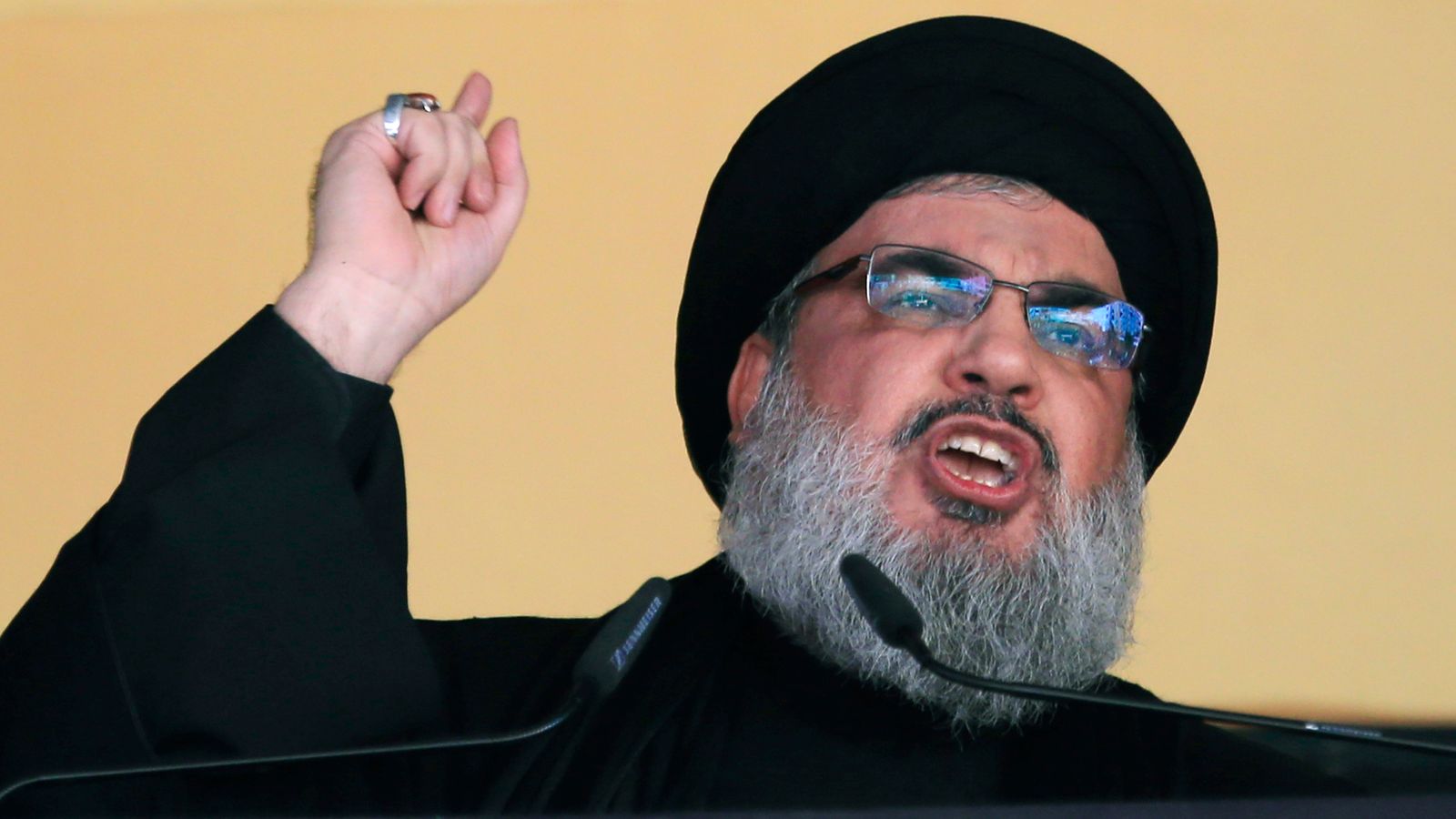The leader of Hezbollah is dead.
This is a very big moment, not just in this conflict but for the future of the Middle East.
In 2006, the last Lebanon War, Israel tried and failed to kill him.
Last night, in a huge series of strikes on southern Beirut, they finally hit their target.
Read more: Who was Hassan Nasrallah?
Listen: What is Hezbollah and how powerful is it?
Over the past 18 years Nasrallah has grown Hezbollah in his image, expanding its forces, building its infrastructure and significantly expanding its arsenal.
He wasn’t just the leader of Hezbollah, he was a global figurehead of anti-Israel resistance.
With Iran’s help, Hezbollah became one of the best armed non-state militaries in the world.
It is now decapitated and in disarray.
During the past decades Israel has also been at work, steadily gathering intelligence on Nasrallah and Hezbollah, building a vast database of information, an effort which arguably distracted them from better understanding the intentions of Hamas.
The intelligence successes of the past days have helped restore Israel’s reputation after the stunning failures on October 7.
Iran and Hezbollah must choose
This is a pivotal moment.
Iran and Hezbollah must now decide how to respond: fight, or backdown.
The strike also killed Ali Karaqi, commander of Hezbollah’s southern front and labelled as the second most wanted by the IDF.
It is still unclear who else died in the strike, but given the location and the presence of top officials, it seems likely that other senior figures would have been eliminated too.
Nasrallah will be replaced.
The assassination of enemy leaders can prove to be a short-term victory because they are often succeeded by someone more formidable than before, as witnessed by the killing of the former Hezbollah leader Abbas al Moussawi in 1992.
He was succeeded by Nasrallah.
The working assumption is that the group will respond with barrages of missiles into Israel, probably targeting Tel Aviv.
But Hezbollah’s command structure has been severely degraded by Israel.
Nasrallah had become isolated as the IDF had steadily killed commanders over a fortnight of scything airstrikes on their compounds in Beirut and elsewhere.
It will probably take time to co-ordinate a response and it will probably be done with Iranian guidance.
Nasrallah might be dead, but Hezbollah isn’t
Hezbollah is badly wounded, not just as a paramilitary force but in the eyes of the Lebanese people, many of whom are angry their country is now facing another period of devastating violence.
This might be a moment for more moderate voices within Lebanon, including the national armed forces, to step in.
As the war escalated over recent weeks, noticeable divisions emerged between Tehran and Nasrallah.
He remained an important ally, however, a trusted advisor to Iran’s Supreme Leader, and this will come as a personal blow to him.
Having resisted the opportunity to get involved so far, Iran might decide the time has come to take the gloves off and deploy what is left of the thousands of missiles they’ve provided Hezbollah with.
Alternatively, after such a difficult ten days, Tehran might conclude that this round of fighting needs to end and pull back with its main proxy still in some shape to rebuild and fight another day.
With such momentum behind Israel, Iran will also be concerned about its own fate and that of its smaller proxies in Iraq and Syria.
Ultimately, the reason for Hezbollah’s existence – to act as insurance against an Israeli attack on Iran’s nuclear facilities – hasn’t changed, but if Tehran calculates its proxies can no longer act as that shield it might try to accelerate its nuclear programme.
Could a ground invasion follow?
The Israeli government has choices of its own: order a ground invasion of southern Lebanon or continue with an air campaign that has delivered such dramatic successes.
There will be strong and compelling voices in Netanyahu’s cabinet urging him to take advantage of the situation and send troops in, but Hezbollah is not defeated, thousands of its soldiers remain and they are likely hiding in the vast tunnel network under the hills across the border.
Even a limited ground invasion risks large loss of life, on both sides, and the potential Israel will be lured into something more prolonged than it intended.
Nasrallah’s death might change the dynamic in Gaza too.
Yahya Sinwar, the leader of Hamas, has clung on and rejected ceasefire attempts in the hope that Hezbollah and Iran would go to war with Israel, dragging its enemy into a multi-front and unwinnable conflict.
That might still happen, but just as Nasrallah became isolated, so too is Sinwar.
The much trumpeted “unity of arenas” has failed to join up.
The Middle East might often look chaotic to outsiders, but there are unspoken rules generally acknowledged and followed by belligerents.
For years Hezbollah and Israel acted within the unwritten but understood parameters of a shadow war.
Then, eleven months ago on 8 October, Hezbollah attacked Israel out of solidarity with Hamas.
Nasrallah tied Lebanon’s fate to Hamas, insisting that Hezbollah would only stop when the fighting ended in Gaza.
That ceasefire never came.
The rules shifted as the crossfire escalated, but it remained broadly contained within boundaries understood by both sides.
Until two weeks ago, 17 September, when thousands of pagers started exploding across Beirut and Lebanon.
It is possible Nasrallah had concluded that Israel was war-weary, and he overestimated the domestic and international pressure Netanyahu was under to end the fighting.
He might have believed that Netanyahu had neither the will nor the support to open up another front.
He, like so many of us, maybe assumed US influence on Israel would prevail.
Those miscalculations cost him his life.
Checkout latest world news below links :
World News || Latest News || U.S. News
The post Hassan Nasrallah killed: Decapitated and in disarray, Hezbollah and Iran must now decide to fight or backdown appeared first on WorldNewsEra.

